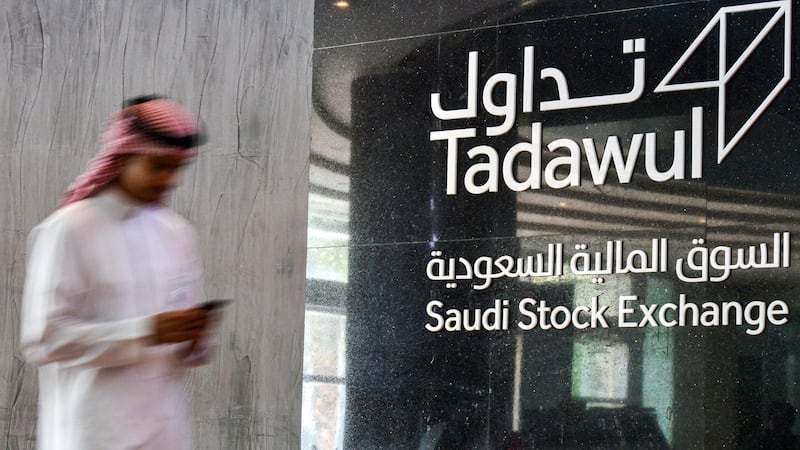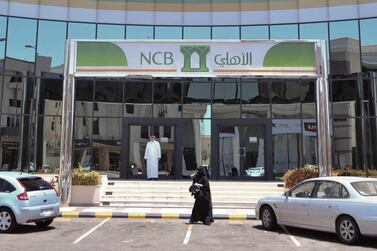Saudi Arabia's National Commercial Bank, the biggest lender in the kingdom by assets, posted a 2.1 per cent increase in its first quarter net income due to a rise in net special commission and fee income, which helped the lender offset an increase in impairment charges.
Net profit for the three-month period ending March 31 climbed to 2.8 billion riyals (Dh2.74bn), NCB said in a bourse filing to Tadawul stock exchange, where its shares trade. NCB’s quarterly profit was below EFG Hermes’ forecast of 2.4bn riyals and FAB Securities’ 3.3bn riyals projection.
The lender said its total operating income increased 7.2 per cent to 5.3bn riyals, buoyed by a 6.9 per cent jump in proceeds from special commissions while income from financing and investment reached 4bn riyals.
A rise in fees from banking and services and foreign exchange income was partially offset by an increase in other operating expenses, it noted.
However, “net impairment charge for expected credit losses”, climbed 173 per cent at the end of the first quarter to 396 million riyals, NCB said.
Like their global counterparts, lenders in the Gulf countries are seeing a rise in provisioning for bad loans as they set aside funds for expected credit losses amid a coronavirus-induced economic slowdown. Margins are under pressure as loan growth slows and interest rates plunge as the pandemic disrupts the global economy.
Last month, the International Monetary Fund forecast the global economy would shrink 3 per cent this year, sliding into the deepest recession since the Great Depression of the 1930s. The outlook for global output is worse than the 2008 global economic crisis, according to the Washington-based lender.
Despite economic headwinds, NCB said its assets at the end of the reporting period rose 15 per cent to 535bn riyals. The bank's investments climbed 7.8 per cent to 133bn riyals, while customer deposits also increased 21 per cent to 375.2bn riyals.
Meanwhile, Samba Financial Group, reported a more than 19 per cent rise in its net profit to 1.3bn riyals, the lender said in a separate bourse filing to Tadawul on Sunday.
Its quarterly operating profit jumped 10.7 per cent to 2.4bn riyals.
Samba attributed the rise in operating income to “gains on FVOCI [fair value other comprehensive income] debt, exchange income and other operating income, [which was] partially offset by increase in zakat and taxation expense for the quarter”.
Samba said its assets at the end of March rose 15.5 per cent year-on-year to 267.1bn riyals, while its investments climbed 20 per cent to 91.4bn riyals for the period.








